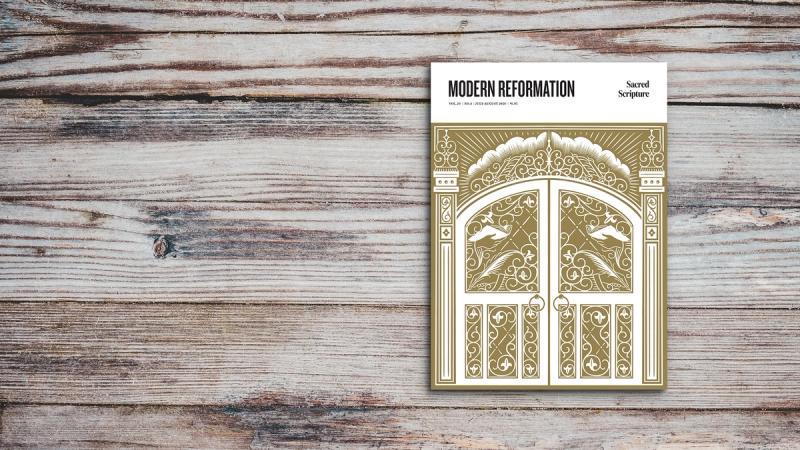The topic of Scripture and its authority is a familiar one to readers of Modern Reformation, and we return to it again in part because important topics bear repeating. But it is also a timely topic. Over the first half of 2020, we covered issues related to our secular culture. It is now fitting to remind ourselves of that by which God sanctifies us in the midst of it. Jesus did not pray, after all, that we would be taken out of the world, but that we would be sanctified in it by the word of God.
At the popular level, many are confused about what constitutes Christian Scripture. The Christian canon is often regarded in our day simply as the product of a fourth-century hierarchical imposition on the church for political expediency. Others, reacting to this misconception, imagine the Christian canon as having arrived directly from heaven, leather binding and all. In our first feature, Michael Horton helps to clear up some of the confusion, carefully navigating between these two sirens, and providing an informed account of the use of the canon in the patristics along the way.
In our second feature, Harrison Perkins, assistant minister at London City Presbyterian Church, offers a wide-ranging overview of the church’s long and complex discussion of scriptural authority. He shows that from its earliest days to today, Christian Scriptures have been unanimously esteemed as authoritative for the Christian community. Perkins’s essay, however, not only traces this long and complex history; it also traces it back to Peter’s confession that Christ’s words are the words of life. Following Peter’s example, Christians confess Scripture’s authority not as a doctrinal box to check, but because they are words of Christ by which we are sanctified unto life.
Perhaps the most hotly contested aspect of the church’s discussion of scriptural authority over the past five hundred years has been the Protestant slogan sola scriptura. Unfortunately, much of the dispute can be boiled down to fundamental misunderstandings of this motto by both proponents and opponents alike. For our third feature, we asked Michael Allen, the John Dyer Trimble Professor of Systematic Theology at Reformed Theological Seminary in Orlando, about the proper way to understand sola scriptura.
We are also excited to offer our first Global Theology Forum column article by Julius D. Twongyeirwe of Uganda, in which he issues a clarion call to God’s people: As people of the true God, Christians are called to be people for the truth.
We pray that as you take up and read, as you ponder and pray, you will be encouraged—indeed challenged—to attend to the God who in his steadfast love gives us life, so that we are able not only to hear but to keep his word (Ps. 119:88).
Joshua Schendel executive editor







